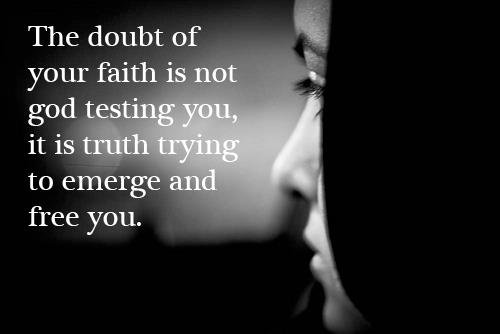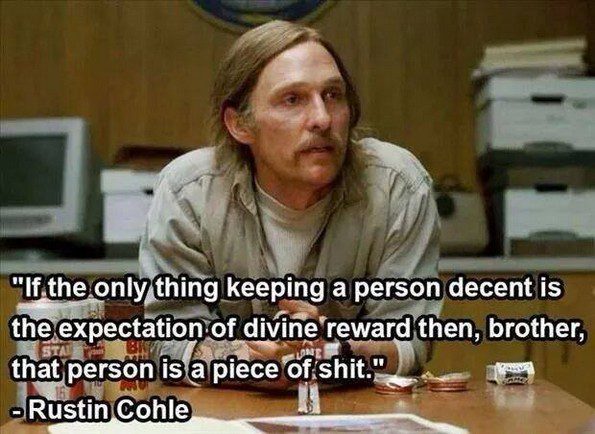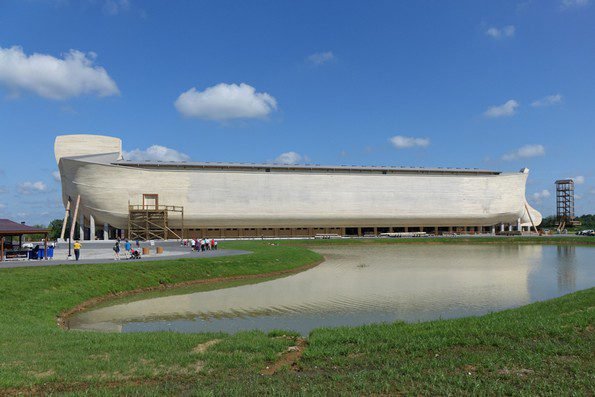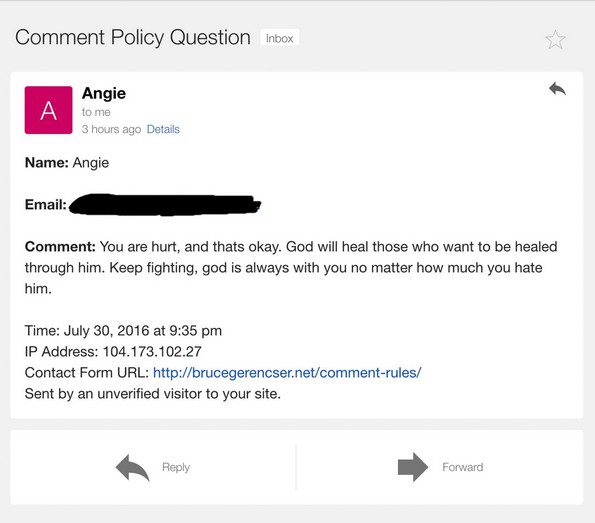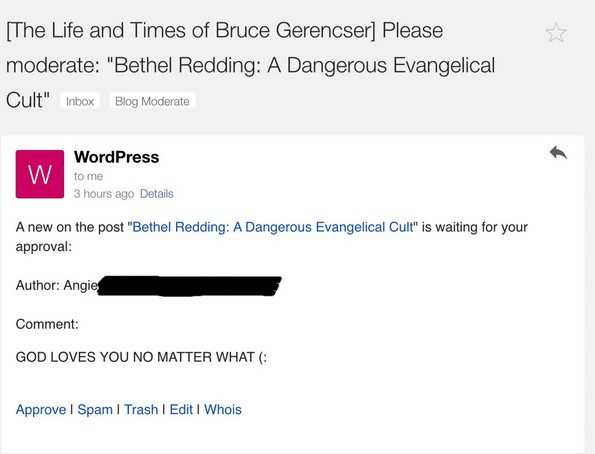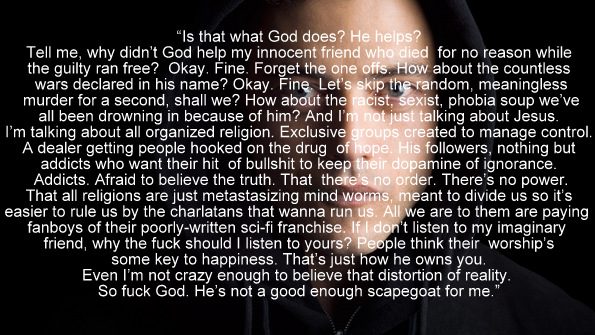
Guest post by Kindred Spirits
Religious to Atheist to Religious Again
And now, a couple examples of Stage IV people, both from the Christian tradition, and as much information as you want about the way they think (since each has written books). Both were religious when younger, then became atheists, and then later in life became Christians again. (Umm, well mostly. Not exactly sure what religious label Karen Armstrong identifies as. She is a religious scholar, and seems to put a great value on religion though. So I’ll put her in Stage IV in Peck’s framework, as I think it fits reasonably well.)
From the quoted excerpts below, I think it’s fairly clear that they are not fundamentalists. You’re unlikely to hear either quote read from the pulpit of a church, including more liberal churches. So clearly they don’t blindly believe the Bible as inerrant. And yet both find some level of profound truth in the Bible and in religion, although their beliefs are quite different from their views when younger, and quite different from fundamentalists too.
Leo Tolstoy
Yes, that Tolstoy. The famous Russian guy that wrote the monstrously large books that you probably haven’t read but are meaning to someday.
The Kingdom of God Is Within You by Leo Tolstoy by Leo Tolstoy:
“The significance of the Gospel is hidden from believers by the Church, from unbelievers by Science.”
The Gospel In Brief by Leo Tolstoy:
“I regard Christianity neither as an inclusive divine revelation nor as an historical phenomenon, but as a teaching which-gives us the meaning of life. I was led to Christianity neither by theological nor historical investigations but by this-that when I was fifty years old, having asked myself and all the learned men around me what I am and what is the meaning of my life, and received the answer that I am a fortuitous concatenation of atoms and that life has no meaning but is itself an evil, I fell into despair and wanted to put an end to my life; but remembered that formerly in childhood when I believed, life had a meaning for me, and that for the great mass of men about me who believe and are not corrupted by riches life has a meaning; and I doubted the validity of the reply given me by the learned men of my circle and I tried to understand the reply Christianity gives to those who live a real life. And I began to seek Christianity in the Christian teaching that guides such men’s lives. I began to study the Christianity which I saw applied in life and to compare that applied Christianity with its source.
The source of Christian teaching is the Gospels, and in them I found the explanation of the spirit which guides the life of all who really live.
But together with this source of the pure water of life I found, wrongfully united with it, mud and slime which had hidden its purity from me: by the side of and bound up with the lofty Christian teaching I found a Hebrew and a Church teaching alien to it. I was in the position of a man who receives a bag of stinking dirt, and only after long struggle and much labor finds that amid that dirt lie priceless pearls; and he understands that he was not to blame for disliking the stinking dirt, and that those who have collected and preserved these pearls together with the dirt are also not to blame but deserve love and respect.”
If you’re interested in more detail of what his view of religion is, you can get more of the meaning from reading the 5-6 page Prologue, and the one page “A SUMMARY OF THE CHAPTERS”, and get most of the ideas clearly.
Karen Armstrong
Karen Armstrong details her life story in the introduction to the book A History of God. She started out religious, even joining a convent, then left, became an atheist, did a television show arguing against religion, then later in life, became a religious scholar. I’m not sure whether she considers herself a Christian or not, but she’s certainly friendly towards religion.
The History of God is about how the notion of God has changed over time among the major Abrahamic religions (i.e., Judaism, Christianity, and Islam.) For example she talks about how the very early Jews were polytheists, then became monotheists. (Personally, I’ve only read the first chapter or so of the book. It’s interesting, but all I had time to read.)
The quote below should clearly differentiate her from fundamentalists, essentially saying that atheism is true, and yet, it proclaims that there is value in religion anyway! (You can read more in her book to get more explanation of how the notion of God evolved over time, and how it is worthwhile.)
From the introduction to A History of God:
When I began to research this history of the idea and experience of God in the three related monotheistic faiths of Judaism, Christianity and Islam, I expected to find that God had simply been a projection of human needs and desires. I thought that ‘he’ would mirror the fears and yearnings of society at each stage of its development. My predictions were not entirely unjustified but I have been extremely surprised by some of my findings and I wish that I had learned all this thirty years ago, when I was starting out in the religious life. It would have saved me a great deal of anxiety to hear – from eminent monotheists in all three faiths – that instead of waiting for God to descend from on high, I should deliberately create a sense of him for myself. Other Rabbis, priests and Sufis would have taken me to task for assuming that God was – in any sense – a reality ‘out there’; they would have warned me not to expect to experience him as an objective fact that could be discovered by the ordinary rational process. They would have told me that in an important sense God was a product of the creative imagination, like the poetry and music that I found so inspiring. A few highly respected monotheists would have told me quietly and firmly that God did not really exist – and yet that ‘he’ was the most important reality in the world.
To be continued….

